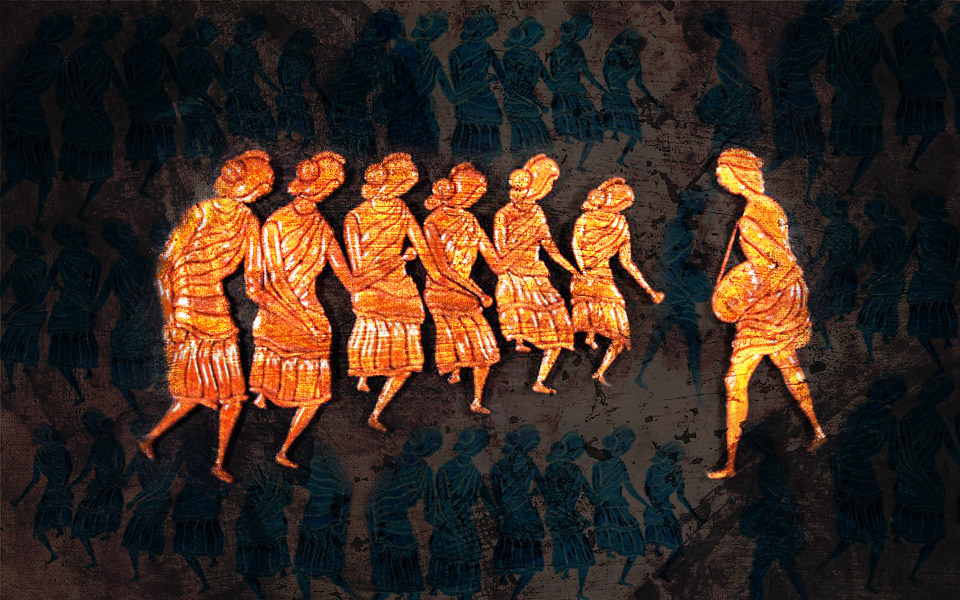
Govt’s UCC push makes tribals jittery over customary laws governing rights

The Narendra Modi government’s push for Uniform Civil Code (UCC) has created a sense of insecurity among tribal communities in various states, prompting protests.
Their biggest fear is that the UCC would weaken — if not completely abolish — the tribal customary laws, taking away their rights over land and property.
“Threat to culture, identity, rights”
“All personal matters like marriage, succession and inheritance, divorce and adoption in a tribal society are governed by varied customary laws. Each tribe has a different set of laws. We fear that the UCC would either do away with the customary laws or weaken them to impose Hindu personal laws,” said Jharkhand Indigenous People’s Forum (JIPF) convener RR Kiro.
Also read: Muslim body comes out strongly against UCC after Modi’s aggressive pitch
“The UCC will be a threat to our culture, identity, and rights over property and land,” Kiro told The Federal. “Any tinkering with the inheritance rights of tribals will free their land from existing legal protection and thus pave the way for their takeover by corporate houses and non-tribals.”
The Chota Nagpur Tenancy Act and Santhal Parganas Tenancy Act that prevent transfer of tribal land to non-tribals would be the ultimate casualty of any attempt to make one uniform law for all communities across the country, he added.
Protests in Jharkhand
The Law Commission in June this year sought views of the stakeholders, including public and religious organisations, on introducing uniform laws for every citizen of the country.
Amid the raging debate on the need to have a uniform law in a country as diverse as India, Prime Minister Narendra Modi on Tuesday (June 27) made a strong pitch for it, arguing that a country cannot run with a dual system of separate laws for separate communities.
Naturally, the comment left the tribal community wary, setting them off on an agitational path.
Several leading tribal organisations of Jharkhand, including the JIPF, decided to lay a siege on Raj Bhavan on July 5 to register their opposition to the UCC.
“We will decide our further course of action after July 5. We are now concentrating on mass mobilisation, asking people to register their objection to the UCC in the suggestion sought by the Law Commission,” Kiro said.
More than 30 tribal organisations of the state on Sunday wrote to the Commission, urging it not to push the UCC as it would put tribal identity in danger.
“Supremacy of majority”
Similar concerns are also being heard in the tribal-dominated northeastern states.
The Nagaland Tribes Council (NTC) and the Nagaland Baptist Churches Council (NBCC) have raised their objections to the UCC.
The move by the present government at the Centre is aimed at establishing “supremacy of majority” over the tribals and the religious minority, believes NPCC general secretary Dr Zelhou Keyho.
Once the UCC is implemented, the freedom guaranteed by the Constitution to various communities to follow their respective personal laws will be snapped, Keyho added.
Also read: Forget UCC for now, amend succession act: Kerala Muslim women’s forum
“The personal laws governing different communities have been built over centuries and are deeply rooted in their cultural and religious beliefs and practices. Hence, forceful application of laws alien to the communities concerned would not be advisable for the healthy growth of society,” the NTC said in a statement.
In February, the Mizoram assembly adopted a resolution, unanimously opposing any attempt to implement the UCC.
Mizoram Home Minister Lalchamliana, while introducing the resolution, warned that the UCC “would disintegrate the country, as it was an attempt to terminate the religious or social practices, customary laws, cultures and traditions of the religious minorities, including the Mizos.”
“Manipur conflict centred around land”
“At this stage, the national debate on the UCC is focused on the personal laws of religion-based communities. These laws have been codified and promulgated by the Government of India. But in this debate, the tribal customary laws, which have not been codified like the personal laws but have evolved over centuries as intrinsic to the cultural, livelihood, social and political systems, and identity of each tribe, have been ignored. A UCC is a threat to all of them and to tribal identity,” said Walter Fernandes, director, North Eastern Social Research Centre, Guwahati.
Also read: AAP gives ‘in-principle support’ to UCC; resistance from other parties on the rise
The prospect of land alienation to non-tribals is particularly a matter of serious concern, a tribal rights activist from Jharkhand, Jerom Gerald Kujur said, pointing out that the current Meitei-Kuki conflict in Manipur is centred around land.
Despite such alarming prospects, the national discourse on the UCC has totally ignored the threat it poses to the tribal land rights, culture, and identity, claimed Kujur.


